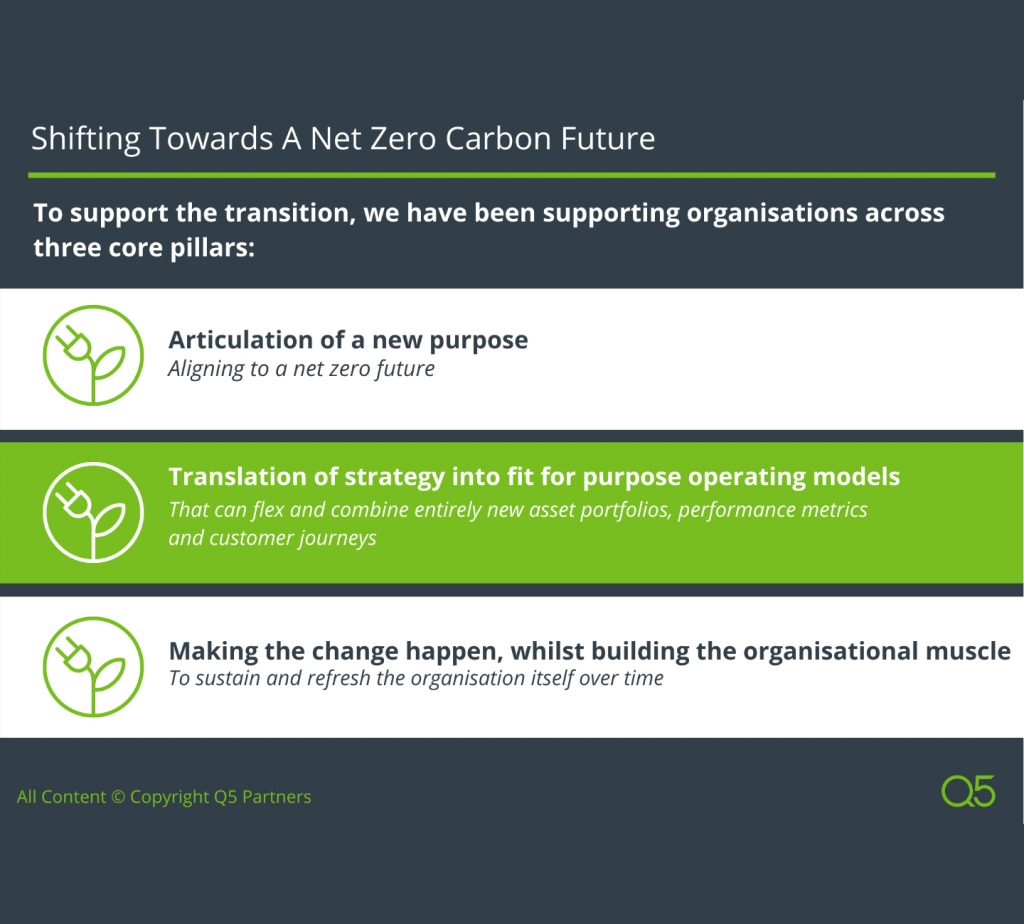

Energy transition, and the move to a low, or even, net-zero economy, is very much underway across a fast-changing, global industry. Oil, and non-renewables, are now seen as increasingly unacceptable by younger generations, whilst investors, ever keen on ESG, have also chosen to increasingly move away from global polluters.

BP laid down its intent last year, driven by a new and disruptive CEO Bernard Looney, targeting ‘Net Zero’ carbon by 2050. Amongst many developments, the recent investment of up to £900m to build two giant wind farms in the Irish Sea truly illustrates the level of change and ambition.
Shell has also announced a 2050 Net Zero emissions goal, in mid-February outlining that they will seek to double the volume of electricity it sells by 2030, alongside halving its “traditional energy” production.
This highlights a contrasting approach to Net Zero across the UK’s most prominent supermajors. Whilst Shell is focused on the emissions of the products it sells, investing heavily in end-user consumption (i.e., utilities, electric car charging) and carbon capture technologies, BP, on the other hand, appears to be more focused on the source, seeking to reduce the oil and gas it produces.
In the UK we have also witnessed the rapid rise of challenger renewable utility organisations such as Bulb or Octopus, both driving a nail into the incumbents’ previously safe market share. Elsewhere, national policymakers are in unison making ambitious decarbonisation targets, with the International Climate Conference in Glasgow this year, due to be a watershed moment in the battle against climate change.
Even the world’s second-largest oil producer, Saudi Arabia, has defined purposeful targets within its 2030 Vision to move towards decarbonising their economy.
It is worth noting that this comes at a time when the industry is not exactly “rolling in it”. The price of oil has been in a slump for seven years, reaching negative prices in 2020 at the height of the Covid-19 pandemic, whilst utility companies are plagued by ever-increasing competition and regulatory intervention.
The transition is not going to be easy, cash flow is already significantly constrained and such large transformation bears inherent risk. We only need to look at the near past to see failures, both in reinvention and paralysis.
At Q5, we’ve been helping a number of clients, ranging from oil and gas supermajors to national utility companies and governing bodies. Each of them is seeking support in how to forge a way ahead and proactively change how they run their businesses before it’s too late. It’s not a time for dawdling and they know it…but it is not simple and often leaders require an external view both for new ideas and validation of direction.
We have found that organisations are enthused to change and, with such a significant strategic shift, need help, both in defining where they want to be, and how they will need to be set up and operate in this future world. Increasingly, the industry is looking outward, seeking to learn from the best-run organisations to transform how they operate.
To support the transition, we have been supporting organisations across three core pillars:
